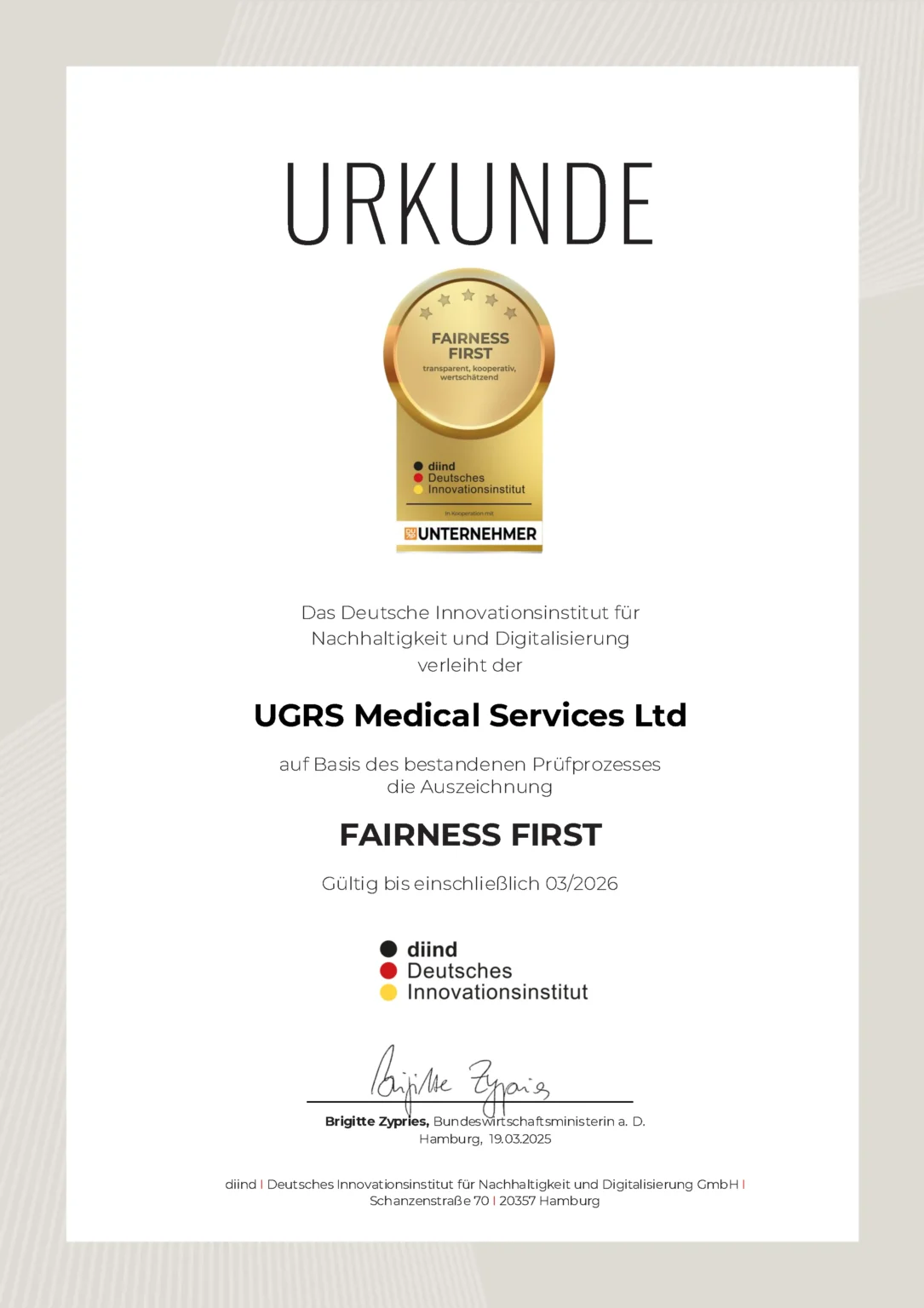Home » UGRS.Knowledge – Glossary on Penis Enlargement, Anatomy & Urology » Urinary retention
Urinary retention
Urinary retention means that the bladder can no longer be emptied or can only be emptied incompletely – even though it is full. Those affected usually feel a strong urge to urinate, but cannot urinate or can only do so in drops. In severe cases, it is no longer possible to urinate at all.
Why is this serious?
Urinary retention is not a disease in its own right, but an acute or chronic condition that needs to be treated quickly by a doctor – especially if it is no longer possible to pass urine. A backlog of urine can damage the bladder and even the kidneys.
Symptoms
- Strong urge to urinate without being able to urinate
- Pain or feeling of pressure in the lower abdomen
- Visible or palpable bladder enlargement
- In some cases: dribbling urine when the bladder is full(overflow incontinence)
- Restlessness, malaise, possibly nausea with prolonged urinary retention
Possible causes
Urinary retention can develop suddenly (acute) or gradually (chronic). Common triggers are
- Mechanical blockages:
- Prostate enlargement (benign prostatic hyperplasia)
- Urethral constriction (urethral stricture)
- Bladder stones or tumors that obstruct the flow of urine
- Neurological causes:
- Nerve damage, e.g. in the case of a slipped disc, multiple sclerosis or paraplegia
- Diabetic neuropathy - nerve disorder in diabetes
- After operations or with certain medications (e.g. painkillers, psychotropic drugs)
Diagnosis & immediate help
Diagnostics:
- Medical history: discussion about complaints, previous illnesses and medication
- Ultrasound of the bladder to detect residual urine
- Bladder catheterization for emptying and measuring the urine volume
Acute treatment:
- Bladder catheter for immediate emptying
- Further treatment depending on the cause (e.g. medication, surgery, urologist)
Long-term treatment
Depending on the cause, various approaches are possible:g
- Medication to relax the prostate
- Disposable catheterization - for chronic residual urine
- Treatment of the underlying disease (e.g. neurological therapy)
- Surgical interventions (e.g. for prostate problems or constrictions)
This content is for general information purposes only and does not constitute medical advice, diagnosis or treatment recommendations. It is in no way a substitute for a professional examination or treatment by a licensed physician. If you have any health complaints or uncertainties, please always consult a medical professional – especially if you have any questions about intimate surgery or sexual health.








